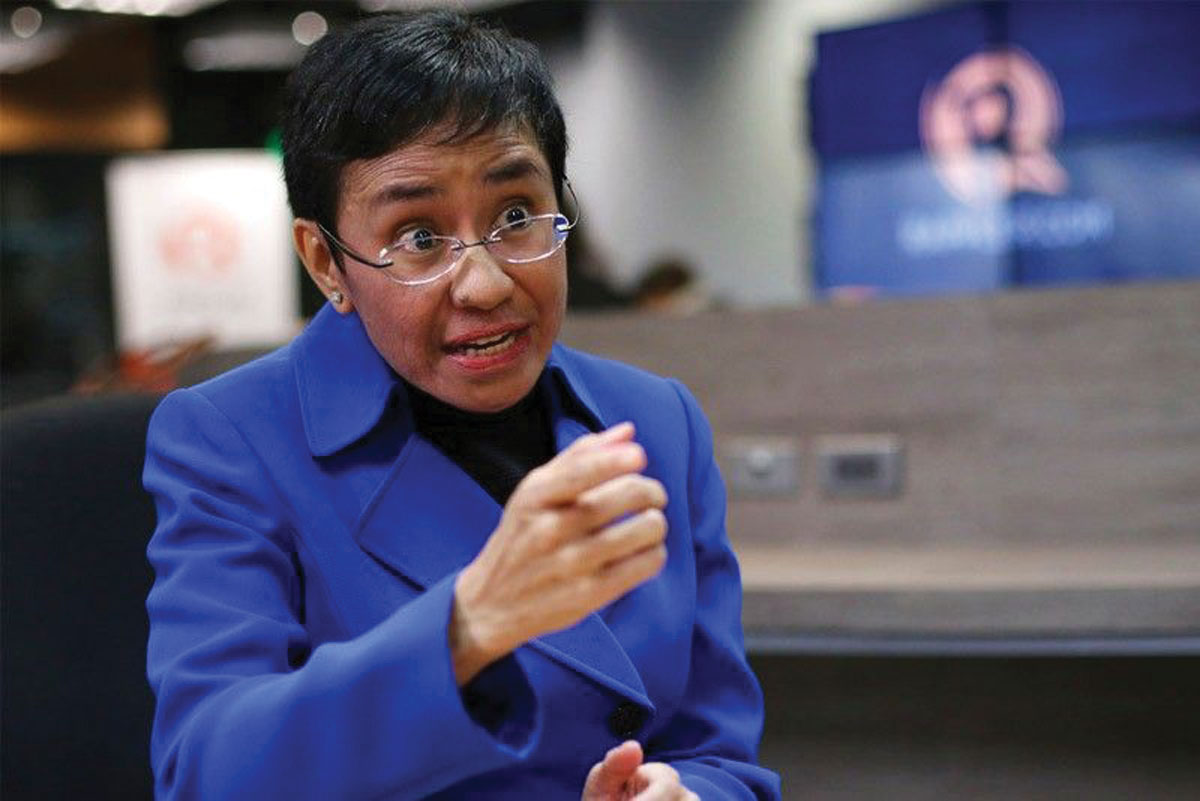
RAPPLER co-founder and chief executive officer Maria Ressa has been charged with cyber libel anew over an article about an alleged thesis-for-sale scheme by a professor of the De La Salle – College of St. Benilde.
The article, titled “Thesis for sale: Benilde students say they paid P20,000 to pass,” was written by Rappler reporter Rambo Talabong and published on January 23, 2020.
On December 7, 2020, Benilde faculty member Ariel Pineda filed the charge against Talabong and Ressa before the Manila Regional Trial Court branch 24, stating that the story contained “false, malicious, derogatory, and highly libelous imputation as well as offensive insinuations” against his good name, character, and reputation.
Talabong and Ressa posted P30,000 bail each after Judge Maria Victoria Soriano-Villadolid issued arrest warrants against them on Monday, January 11.
Their arraignment is scheduled for February 4.
“We are studying the resolution, which we disagree with, and will exhaust all possible legal remedies to have the same dismissed,” Ressa and Talabong’s counsel Theodore Te said in a statement.
“It is disturbing because it seems like cyber libel is now the first option in case of disagreement on reporting,” he added. “Perhaps Congress should consider whether it is high time to decriminalize libel and cyber libel.”
Meanwhile, Talabong stood by his story, calling for the decriminalization of libel.
“I stand by our story. I spent weeks reporting, and weeks more doing everything, to ensure that the story is fair,” he said.
The reporter stressed, “This case further proves that decriminalizing libel is imperative. No journalist should be intimidated for doing his job.”
Rappler likewise expressed the same sentiment, saying that it stands by the story and the “rigorous process” that they went through before publishing it.
“While libel suits are part of the risks that come with the profession, we also know that they are a tool that is used to intimidate journalists who expose wrongdoing,” it said.
“We reiterate the multi-sectoral call to decriminalize libel and to stop these relentless attacks against journalists who, despite obstacles thrown their way, continue to shine the light on the pandemic and other forms of everyday terror,” it added.
Talabong also maintained that there was no malice behind his article.
“The care and prudence taken in verifying the information and the extent to which the side of Mr. Pineda had been sought show the due diligence on my, and Rappler’s, part before the story was even written and posted. This belies Mr. Pineda’s unfounded claim of malice,” he said in his affidavit submitted to Manila Senior Assistant City Prosecutor John Allen Farinas.
This is Talabong’s first cyber libel case.
Ressa, on the other hand, was first convicted of cyber libel in June 2020 over an article involving businessman Wilfredo Keng. Days after her conviction, Keng filed a separate cyber libel complaint against her for tweeting about the story.






